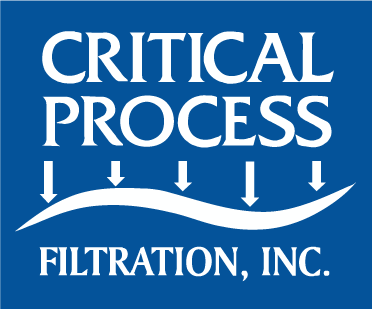Why Does Viscosity Matter When Selecting a Filter?
When working with a customer to select a filter for a specific application, there are many parameters that must be taken into consideration.
- Filtration objective (sterilizing, particle reduction, prefiltration, etc.)
- Chemical compatibility
- Filterability (how fast will the fluid clog a candidate filter)
- Target flow rate
- Batch size
- Fluid viscosity
Fluid viscosity is often overlooked by potential customers when looking for a new filter. But why does this really matter? If a filter is rated for 10 gpm per psid, isn’t that the flow rate it will provide?
In reality, viscosity is one of the major variables affecting filter flow rate. The flow of liquid through an orifice - including pores in a membrane filter - is inversely proportional to the viscosity of the fluid. In simple terms, viscosity is a measurement of a liquid’s resistance to flow. Higher viscosity requires more driving force (pressure in the case of flow through a filter) to achieve the same flow.
Think of it in terms of drinking through a straw. Taking a sip of water or juice (relatively low viscosities) does not require much effort. Now think about taking a sip of an ice cream frappe (much higher viscosity) and how much harder you need to suck on the straw to get a taste!
Predicting how much viscosity will affect filter flow is a fairly straightforward mathematical exercise. Published filter flow rates are typically shown as flow rate versus pressure drop using room temperature water as the test fluid. Water at room temperature has a viscosity of 1 centipoise (cp) - a typical unit of measure for viscosity. Because flow is directly proportional to the viscosity, the predicted flow of a given fluid can be calculated:
Fluid Flow = Water Flow ÷ Fluid Viscosity
So a fluid with a viscosity of 10 cps would have 1/10 the flow of water (or require 10x the pressure to achieve the same flow). A fluid with a viscosity of 100 cps would have 1/100 the flow (or require 100x the pressure). It is fairly evident that as viscosity increases the pressure required to achieve a desired flow rate can exceed the limits of the filter.
The other way to compensate for reduced flow due to elevated viscosity is to increase the filtration area. In the example of a fluid with a viscosity of 10 cps, instead of increasing the pressure by a factor of 10, more filters can be used to keep the pressure down.
For example:
A 30” cartridge will have 3x the filtration area of a single 10”. Running 3 x 30” cartridges in a 3-round housing will have 9x the area. This arrangement will project to 9x the flow at a given pressure. Implementing a system like this was would only require an increase of 10/9 in pressure differential compared to water to maintain the required flow.
Let’s look at a detailed example:
- Fluid viscosity: 10 cps
- Target flow rate: 15 gpm
- 10” filter rating: 2 gpm per psid
Even running with water (1 cps) this would require a starting pressure differential of 7.5 psid, and or more than one 10” filter. But at a viscosity of 10 cps it would require a starting pressure differential of 75 psid. This is technically feasible but does not allow for much of an increase as the filter starts to clog.
 In order to bring the starting pressure differential down to a more manageable 5 psid would require using the equivalent of fifteen 10” filters. This would require a 5-round housing with 30” filters (fifteen 10” equivalents). The starting pressure could be further reduced with a larger housing/filter combination.
In order to bring the starting pressure differential down to a more manageable 5 psid would require using the equivalent of fifteen 10” filters. This would require a 5-round housing with 30” filters (fifteen 10” equivalents). The starting pressure could be further reduced with a larger housing/filter combination.
Following this logic, it is clear that filtering fluids with very high viscosities will result in low flow rates (or very large systems).
From this analysis it is clear that viscosity can have a big effect of filter flow, and must be accounted for when designing a filtration system configuration. Knowing the viscosity in cps allows us to properly size a filter configuration that will meet your specific requirements.





